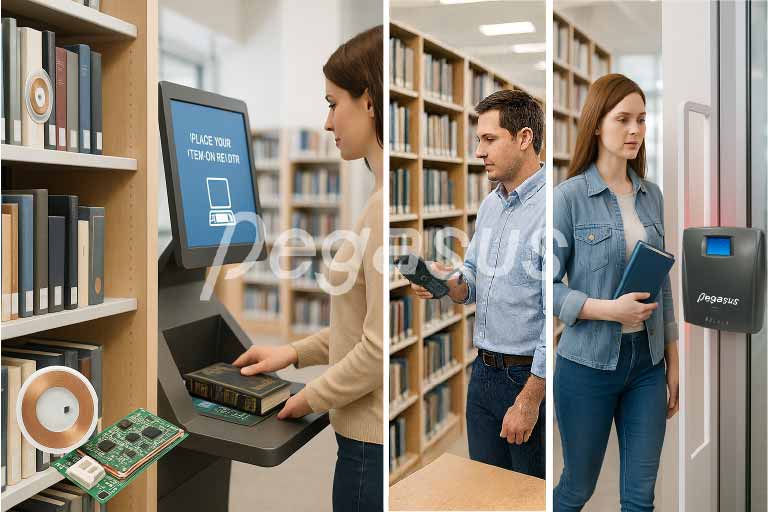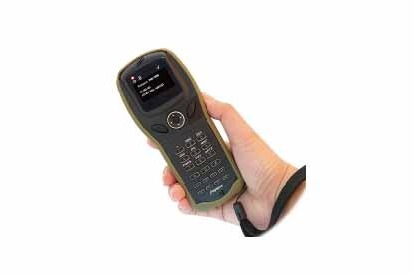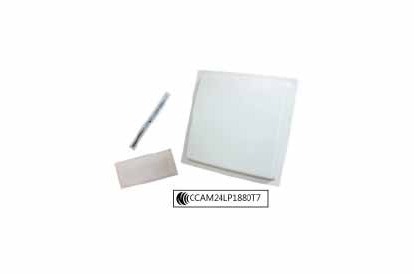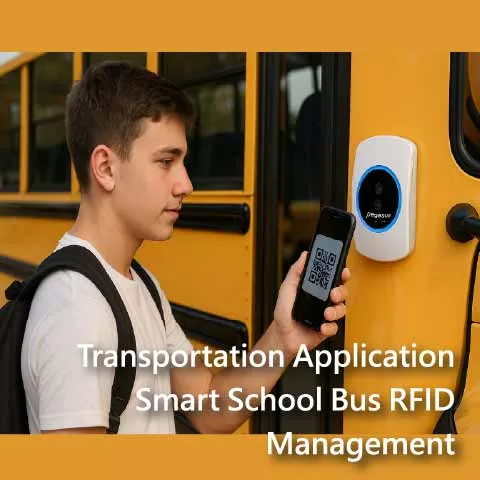In today's knowledge-driven world, libraries remain indispensable as hubs of information and learning. However, they often face long-standing management challenges: massive collections, time-consuming inventory checks, inefficient circulation processes, and high book loss rates. Take the example of a large university library with over 2 million volumes. Traditionally, it relied on barcode systems. Each book had to be scanned manually, resulting in long queues at circulation desks, extended inventory cycles, and frequent misplacements. These inefficiencies not only strained library staff but also reduced user satisfaction. To address these challenges, libraries are increasingly turning to RFID (Radio Frequency Identification) technology as a reliable and scalable solution.
Challenges
- Inefficient circulation:Manual barcode scanning creates long queues and is prone to human error.
- Lengthy inventory cycles:Full stock-taking can take weeks or even months, limiting management visibility.
- High book loss rates:Without real-time monitoring, misplaced or unreturned books are difficult to recover.
- Resource-intensive operations:Librarians spend too much time on repetitive administrative tasks instead of user engagement.
RFID Solutions
Pongee delivers a hardware-based solution built on RFID Modules, Readers/Writers, Long Range Readers, and RFID Labels, seamlessly integrated with existing Library Management Systems (LMS/ILS).
- Book Tagging with RFID Labels
- Product Reference: RFID Label / MIFARE Tag
- Each book is equipped with a 125KHz & 13.56MHz RFID label containing a unique identifier.
- These labels act as digital “ID cards” for each item, enabling instant recognition.
- Self-Service Kiosks
- Product Reference: 125KHz & 13.56MHz Read Module
- Embedded RFID modules allow users to borrow and return books independently.
- The system records the transaction instantly, reducing wait times and staff workload.
- Smart Inventory Readers
- Product Reference: Mini Reader / Classical Reader
- Librarians use handheld readers to scan entire shelves in minutes.
- Unlike barcodes, RFID Readers can capture multiple items simultaneously, shortening inventory from weeks to just days.
- Entry/Exit Control with Long Range Readers
- Product Reference: RFID Long Range Reader
- Fixed RFID Readers at entrances and exits detect unregistered items leaving the premises.
- If a book passes through without being checked out, the system raises an alert, reducing losses significantly.

Results
Libraries implementing this RFID solution have reported:
- 60% improvement in circulation efficiency, halving user wait times.
- Inventory cycle reduced from 3 weeks to just 4 days.
- 18% reduction in book loss rates, with higher recovery success.
- Staff time reallocated from repetitive scanning to user services and educational programs.
Extended Value
- Transparent Asset Management:Beyond books, the same RFID solution applies to laptops, projectors, and tablets.
- Data-Driven Insights:Circulation data provides valuable analytics to optimize collection management.
- Campus Card Integration:RFID modules support multiple communication protocols, enabling integration with campus ID cards for unified access, borrowing, and identification.
- Global Market Potential:According to ResearchAndMarkets, the global library RFID market is growing at a 12% CAGR. Adoption is widespread in North America and Europe, while Asia, Eastern Europe, and the Middle East still rely heavily on barcodes indicating significant growth opportunities.
System Integration Architecture
The workflow can be summarized as:
- RFID Hardware (Modules, Readers, Tags) → Collect item IDs.
- LMS/ILS → Maps IDs to catalog entries and updates circulation status.
- End Result → An automated, transparent, and user-friendly library operation.
This integration ensures RFID hardware enhances existing workflows without requiring a full system replacement.
(FAQ)
Q1:Do libraries need to replace all existing barcodes?
A: No. RFID tags can be gradually introduced while barcodes remain in use. Both systems can coexist.
Q2:Will RFID complicate the borrowing/returning process?
A: No. On the contrary, it simplifies the process. Users can complete checkouts and returns faster.
Q3:Does implementing RFID require replacing the entire LMS/ILS?
A: No. Pongee hardware supports multiple communication protocols and integrates seamlessly with existing systems.
📚
If you are a system integrator or distributor looking for RFID modules and solution support in educational applications, feel free to contact us.
We provide UHF RFID modules, readers, and complete technical integration support to help accelerate your project development and deployment.







